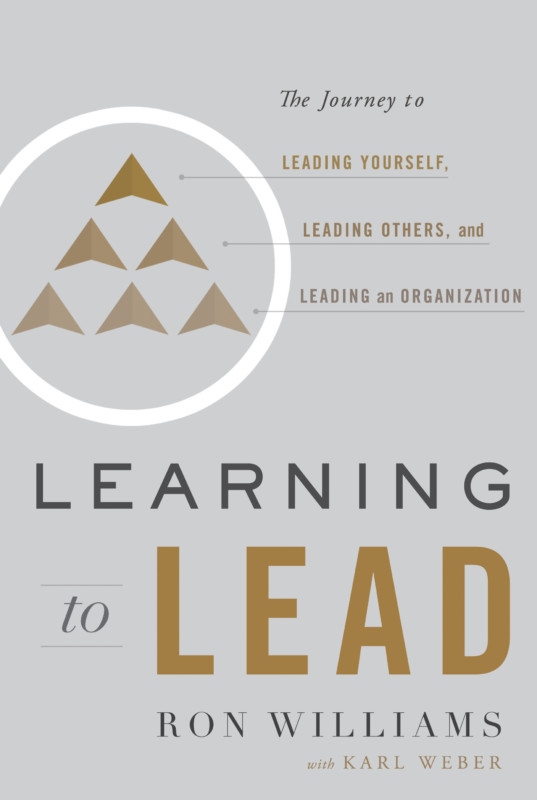If you hope to be one of the leaders of tomorrow, I urge you to embark on your career journey in the same spirit of dauntlessness and self-discipline demonstrated by people like Pat Russo and Ursula Burns, whom I’ll talk about later. If you’re like them — or like me — you’ll find it can take time to discover the challenge you were born to tackle. I can promise you that the journey will amply repay the effort.
Here are some specific suggestions to consider as you tackle some of the early career decisions that will shape your lifetime path:
Reject stereotypical thinking. Don’t let other people define who you are, what you can become, or what you can accomplish. Feel free to disregard the familiar assumptions that define the characteristics of a business leader. For example, many people would probably assume being an introvert would be a handicap for a leadership role. But over my years in business, I’ve found that being introverted has helped me to develop a leadership style that is consistent, stable, and predictable—qualities I’ve used to help fuel my effectiveness.
Break out of your comfort zone. In every job, look for opportunities to stretch yourself. As a natural introvert, it took me a long time to learn that a certain amount of social interaction was necessary for a leader; otherwise, people felt neglected or didn’t feel that you cared about them. Fortunately, doing things that make me uncomfortable is what I’ve done all my life. In fact, I believe that if you’re comfortable with every activity in your life, then it’s probably time to start doing some new things. The sense of discomfort is a good sign — it tells you that you are trying a fresh route that offers potential rewards far greater than those you’ll enjoy by taking the path of least resistance.
Take a calculated risk. Which is the better choice for a young person coming out of school—a job with a big, established company, or one with a tiny startup? If both job assignments appear equally appealing, my counsel is to take the job that you perceive as carrying the bigger risk. That’s probably the job where you’ll face the greatest challenges—and therefore learn the most.
Pick jobs with quantifiable results. Pat Russo urges ambitious young people—especially women—to look for work in line management (i.e., helping to run operating departments or divisions) rather than staff jobs (such as human resources or public relations). She advises: “Staff jobs can be challenging and valuable. But I suggest you seek out jobs that have results that are measurable—jobs where you’re held responsible for sales revenues, customer growth, new product introductions, profit margins, or other specific metrics. Jobs like this give you a chance to build up a track record of results that no one can question or argue with, and that create opportunities for your future. People who produce results rise to the top.”
Keep your future options open. When making any career choice, think in terms of increasing the number of options you will have in the future. Ask yourself: If I take this job, will I have more choices at the end of the day? Avoid choices that you sense may be leading toward a dead end or simply repeating more of what you already have. And do your homework to identify sectors of the economy that are growing rather than shrinking. That’s where the best and most numerous future job opportunities are likely to be found.
Exceed your job description. One strategy that is likely to stall your career growth is to take a transactional view of your current job—in other words, to think of it strictly as a quid pro quo arrangement in which you give the company exactly what you are paid for, no more and no less. Team members who never provide any extra value—who avoid special assignments, ignore opportunities to take on new challenges, and never offer ideas for improving the organization—are asking to be passed over when promotions are being considered. If you think about it, it makes perfect sense: By sticking strictly to the tasks listed in your job description, you are refusing to demonstrate your ability to perform at a higher level. Why should anyone think of you as a potential leader when you’ve provided them with no evidence to suggest it?
Be patient. As you’re working your way to the higher levels of an organization, avoid trying to force the process. My experience tells me that most companies are hungry for leadership talent, which is always in short supply. They’re unlikely to ignore someone who is gifted with that talent or to leave them buried in the mail room. So if you think you are being unduly delayed in your journey to the top, think again! It’s more likely that you are in need of additional seasoning—that, as skilled as you may be in some aspects of the work, there are other talents you have yet to fully demonstrate. As I’ve advised more than one impatient young Turk eager for a chance to prove themselves, “Take it a little slower. If you focus too intently on the when in your career, you may end up sabotaging the if.”
Of course, there are exceptions. Sometimes you may find yourself working for a company whose fundamental values and culture are markedly different from your own. If you feel consistently uncomfortable with things you are asked to do, it may be necessary to make a break and seek work elsewhere. In other cases, you may be working in a company or an industry that is slowly dying — one that has been rendered obsolete by shifts in technology or market preferences, where every year the resources for personal growth and learning become scarcer. That’s another sign that it may be time to move on.
But when there is no fundamental problem with the company — when you are enthusiastic about the business but antsy about the speed at which you personally are rising, my advice is not to worry too much. When you’re ready for the next job, it will come along, right on time.

Excerpted from Learning to Lead: The Journey to Leading Yourself, Leading Others, and Leading an Organization, by Ron Williams, former CEO of Aetna, with permission from the author.
Follow us here and subscribe here for all the latest news on how you can keep Thriving.
Stay up to date or catch-up on all our podcasts with Arianna Huffington here.


